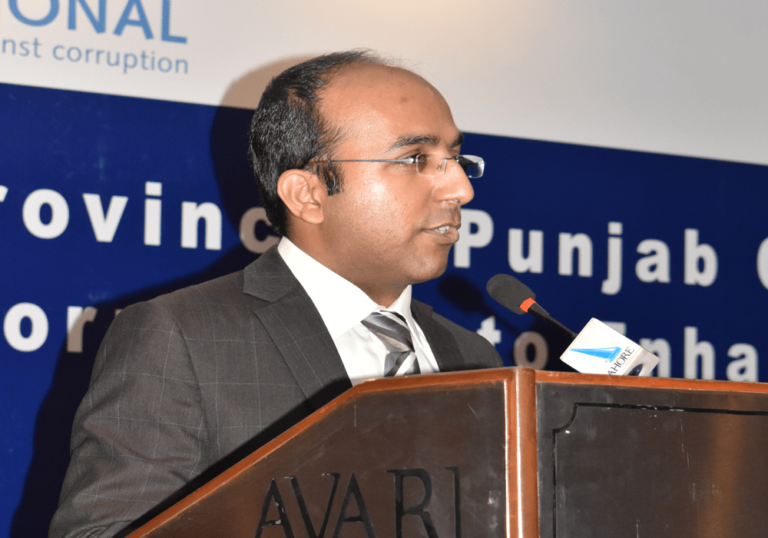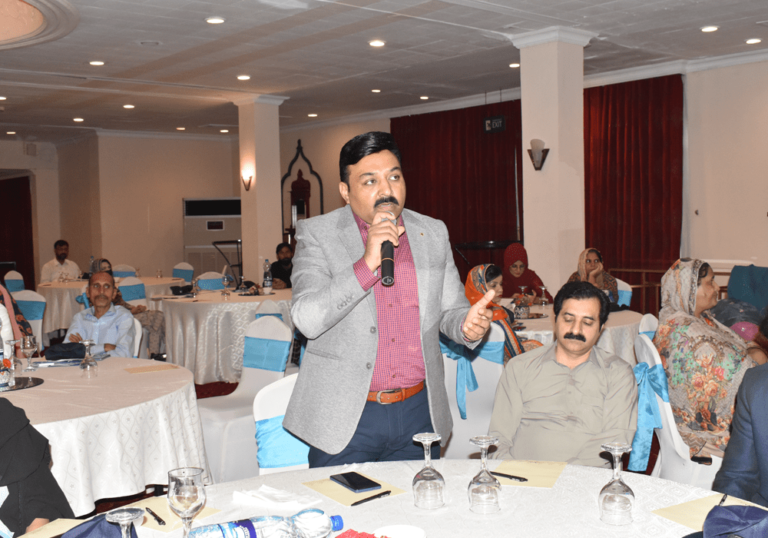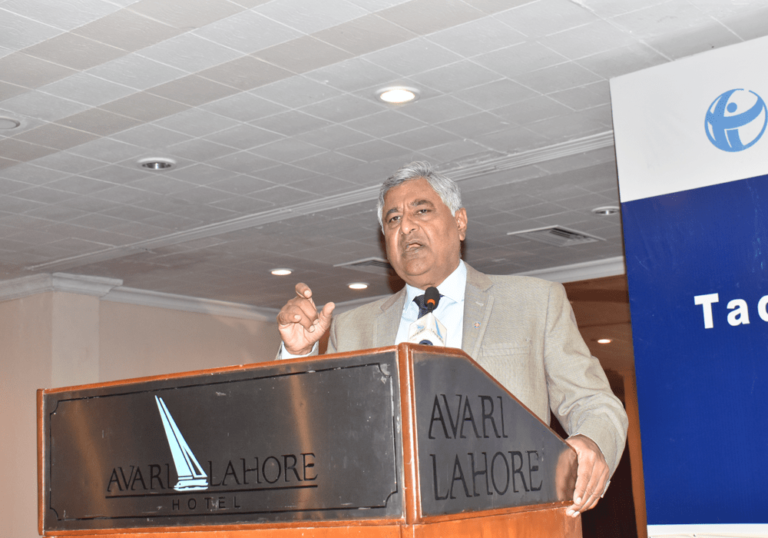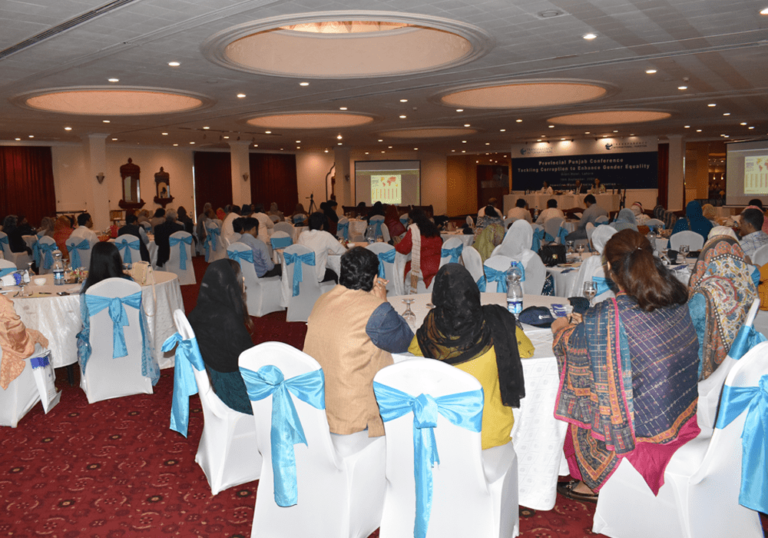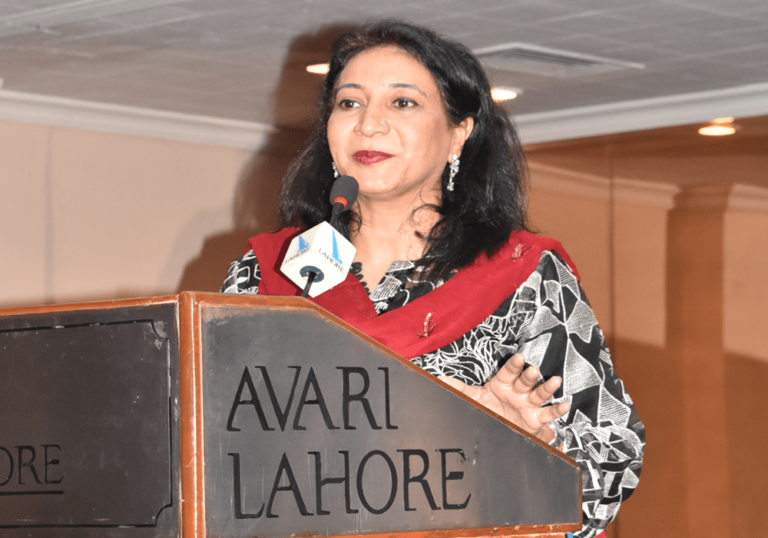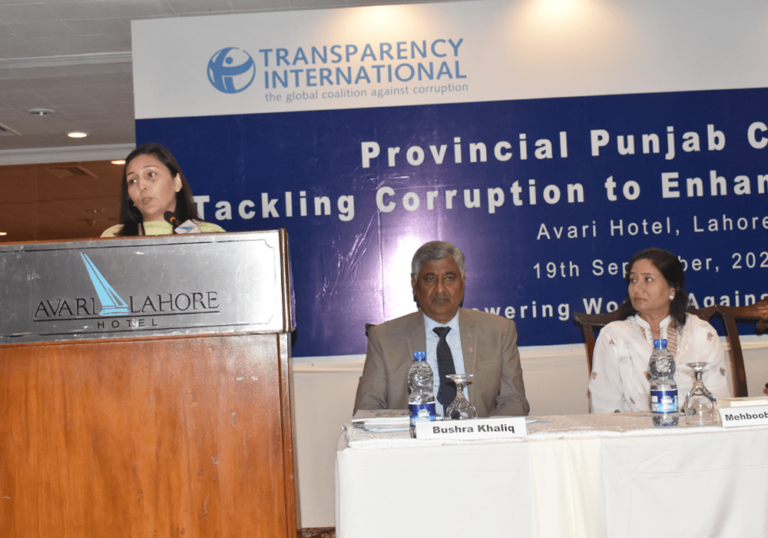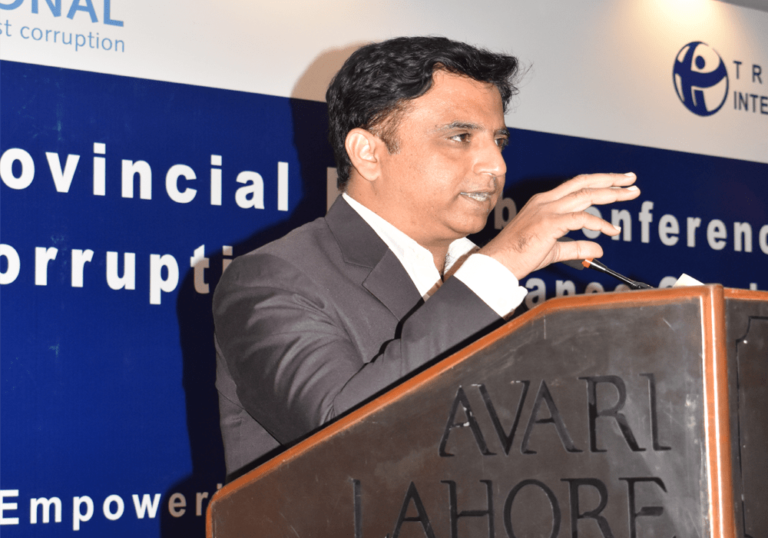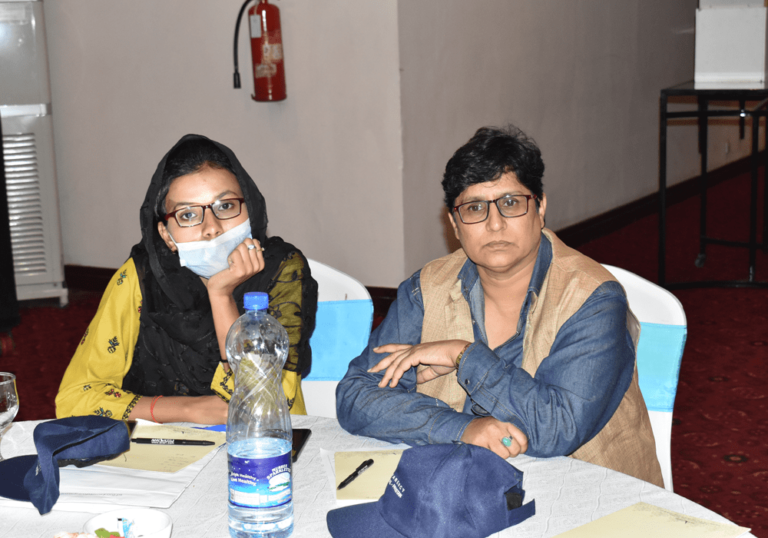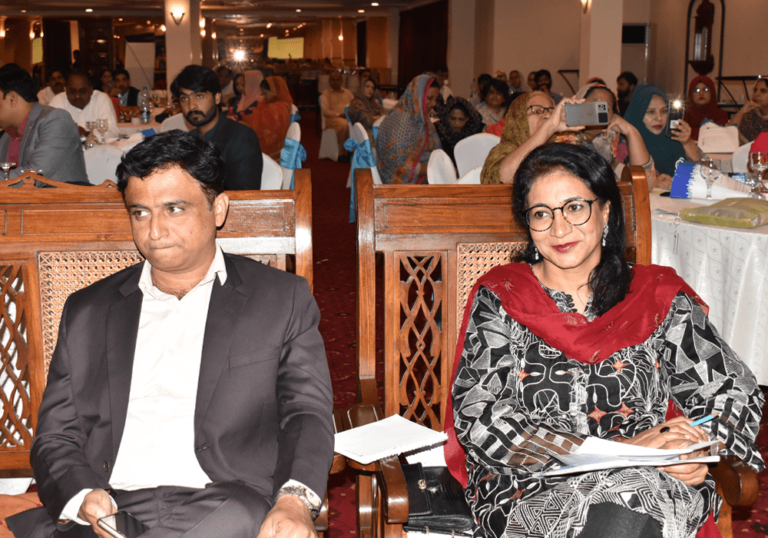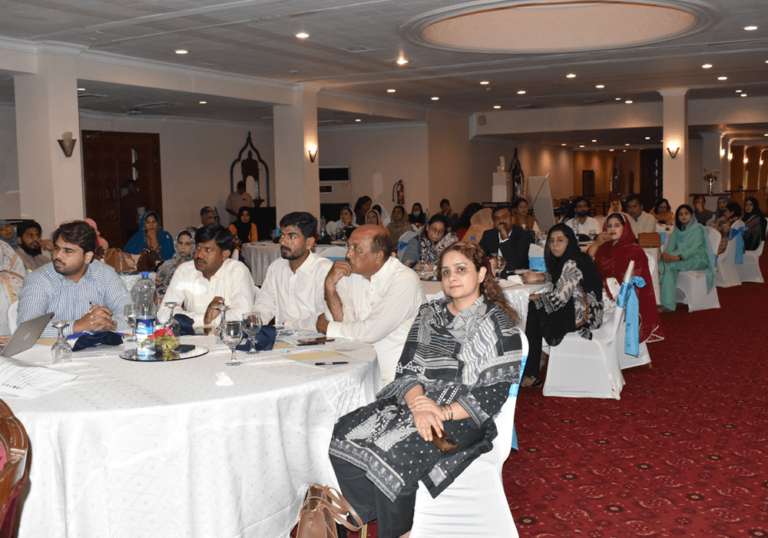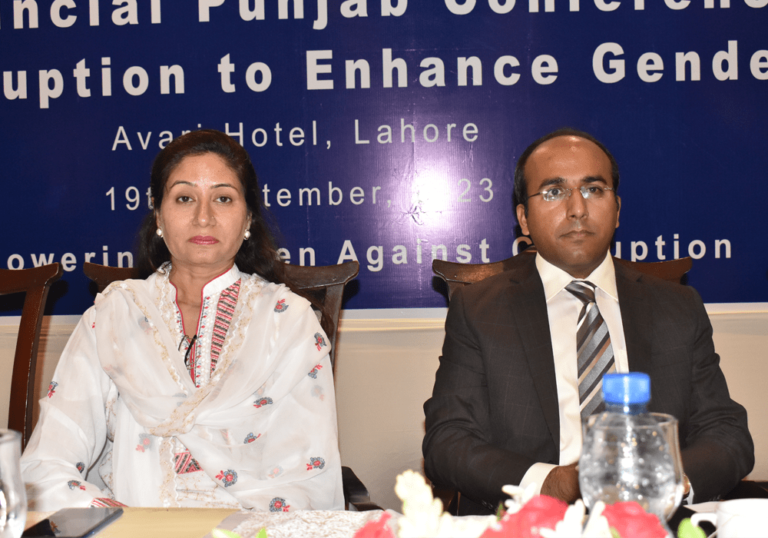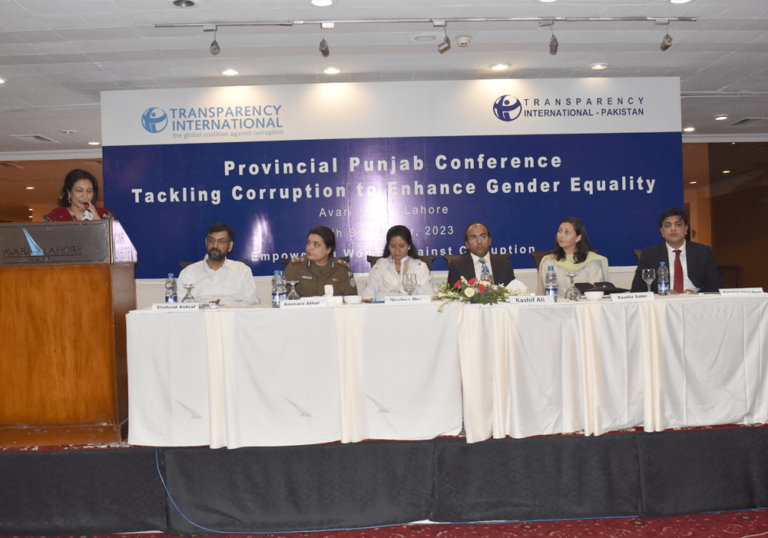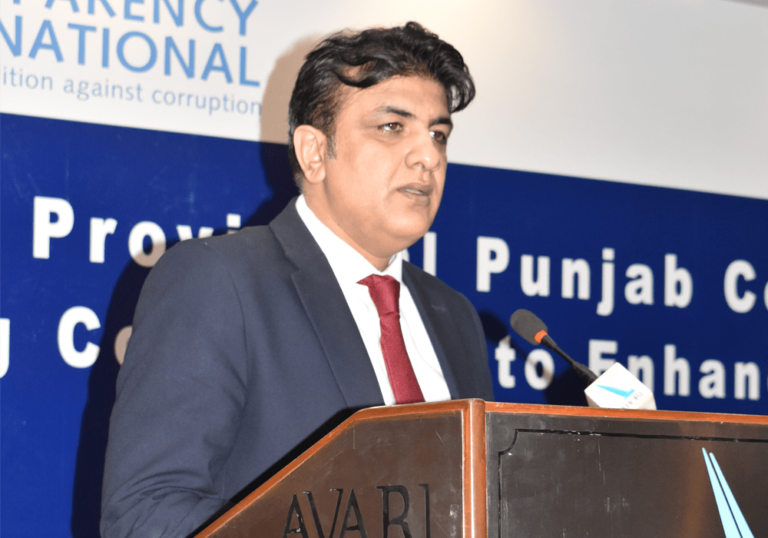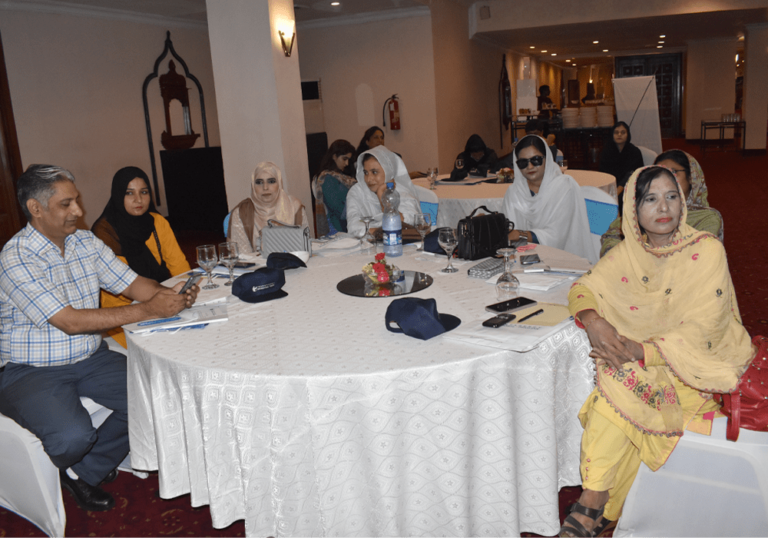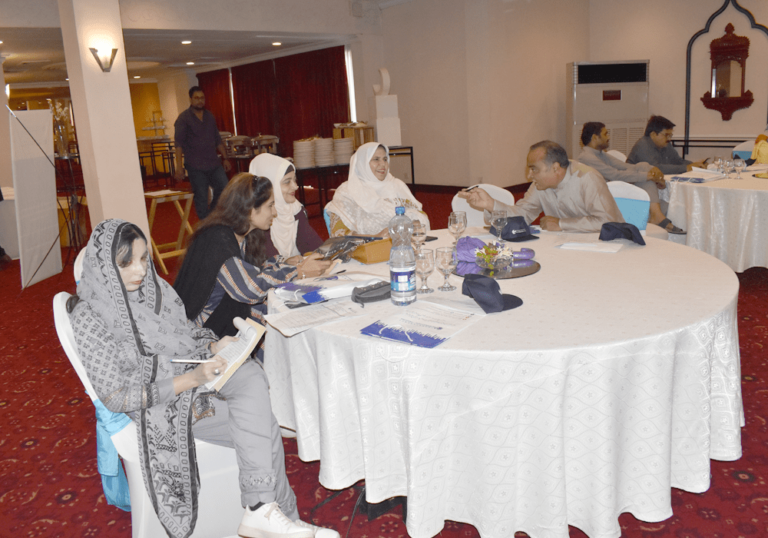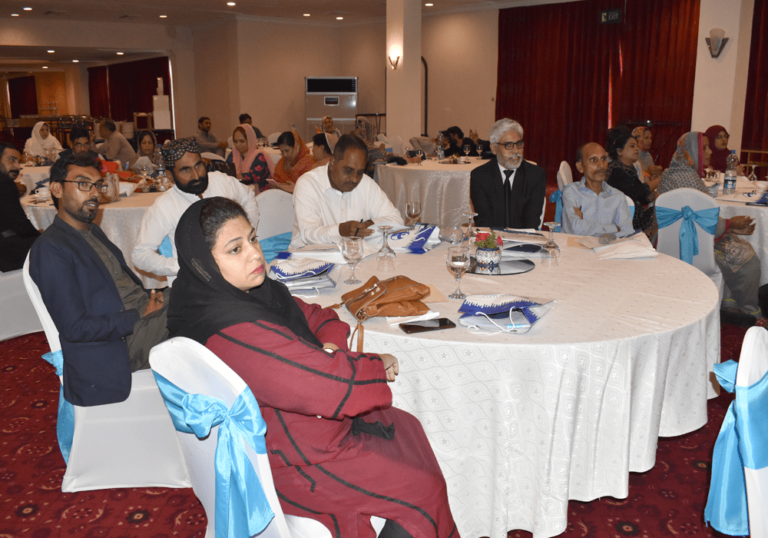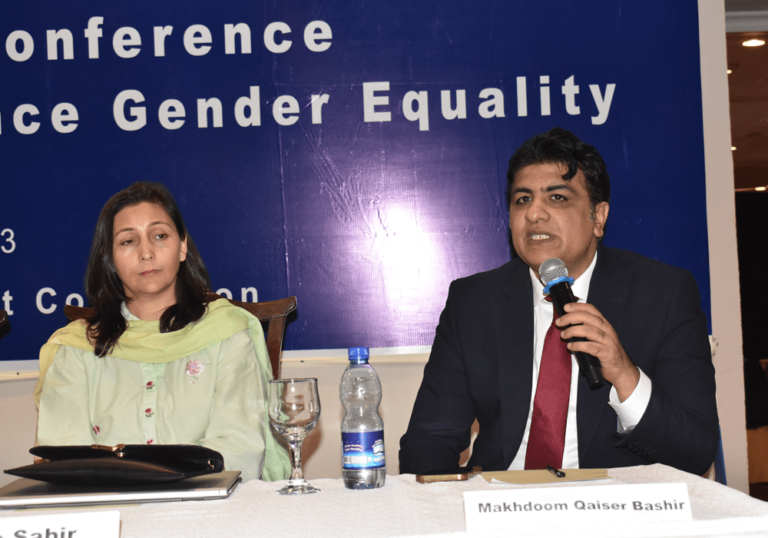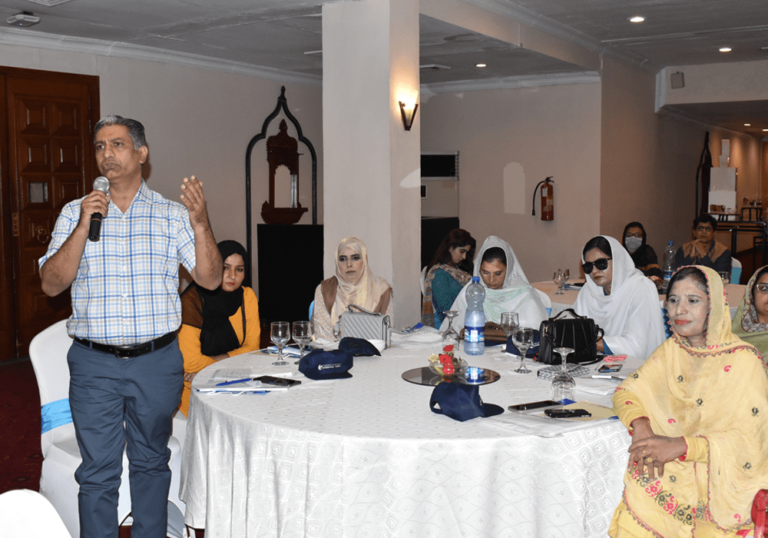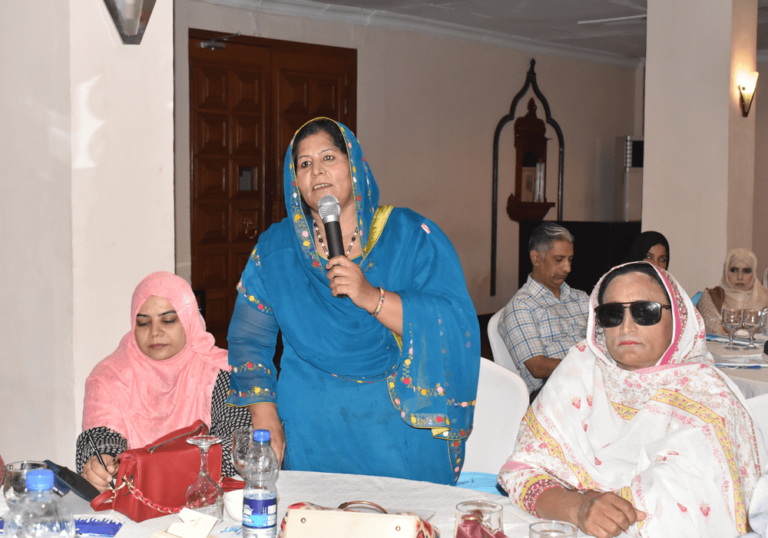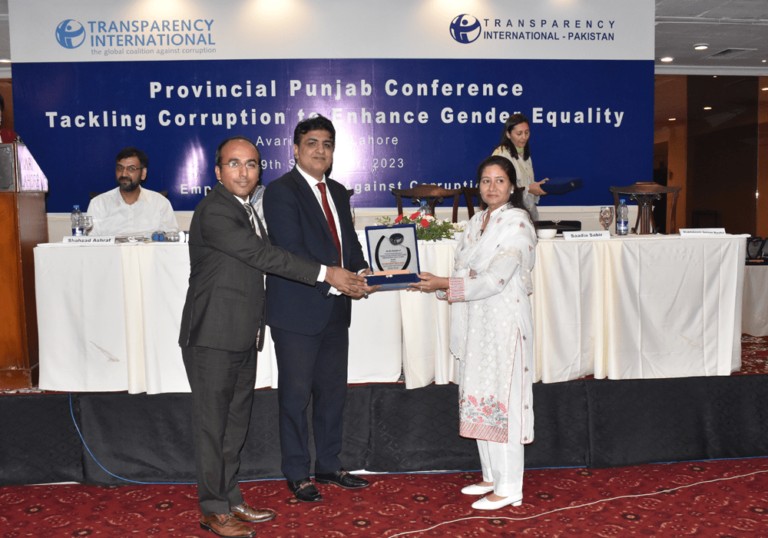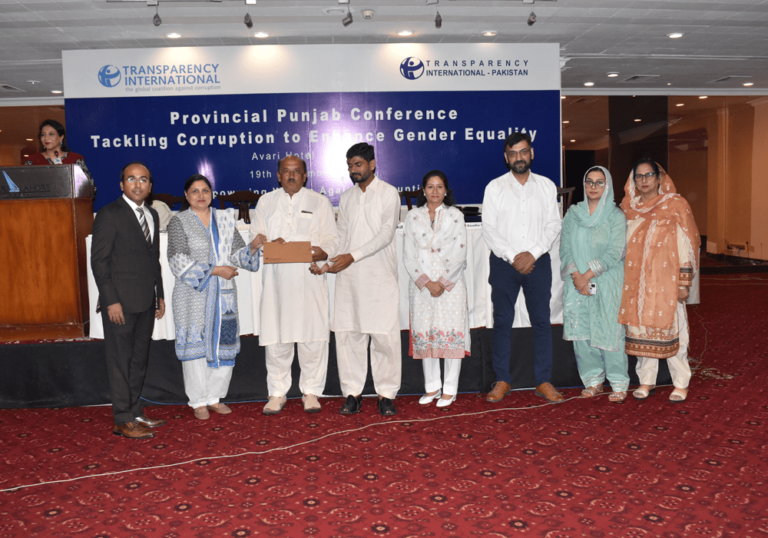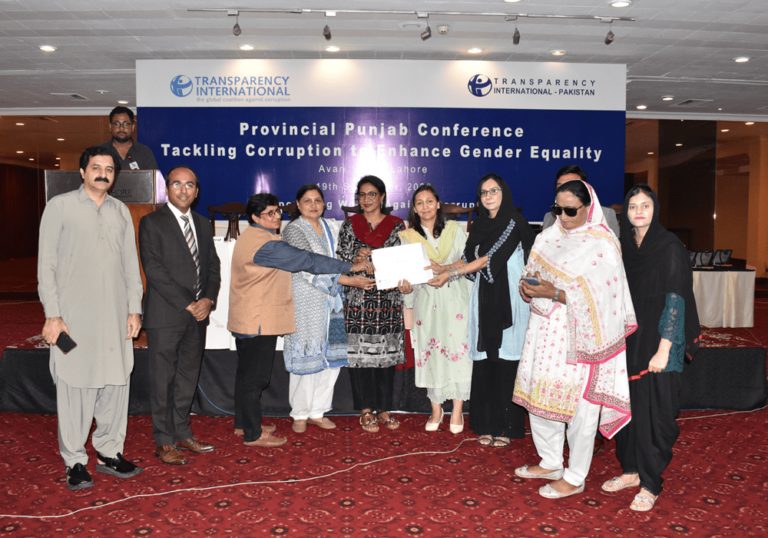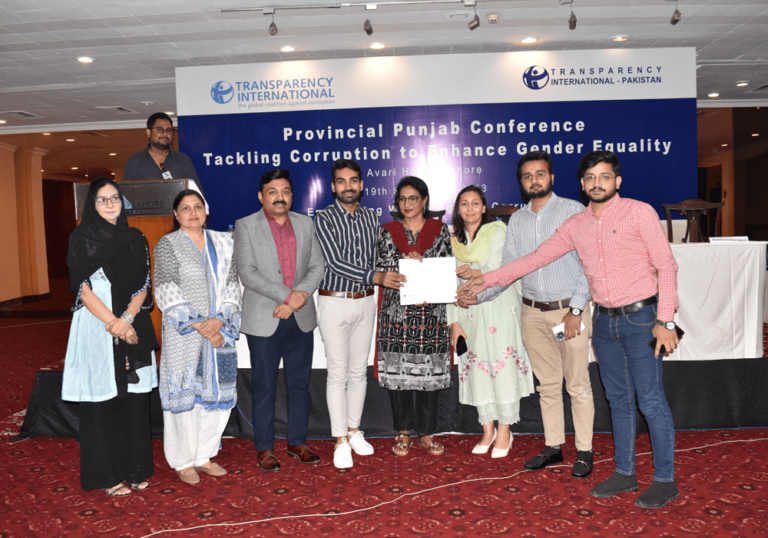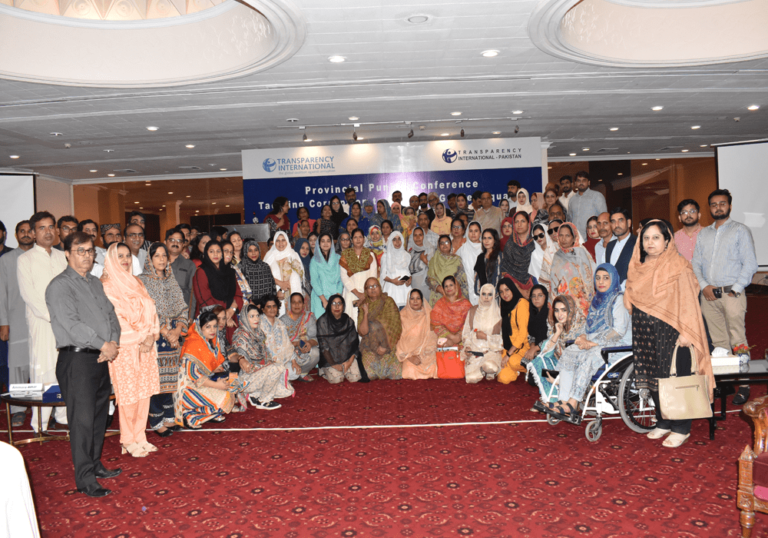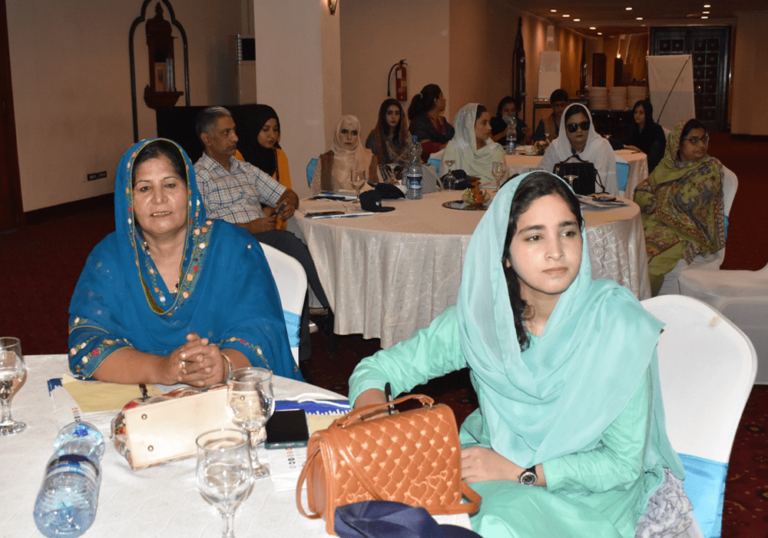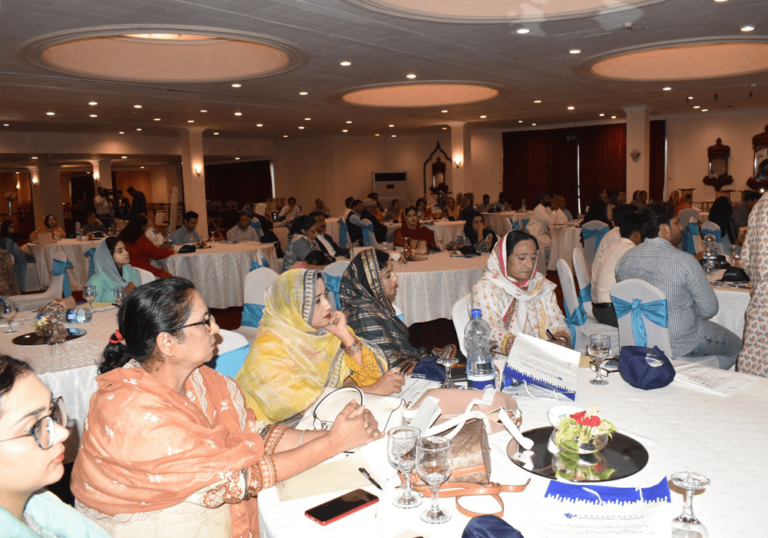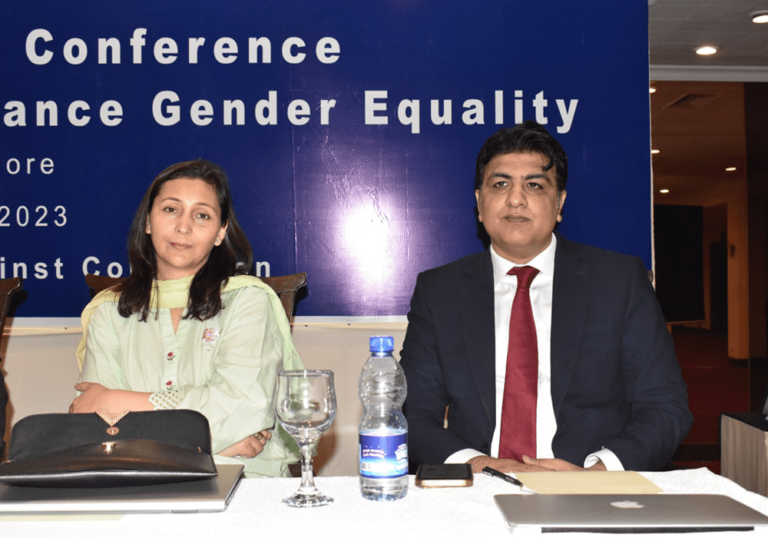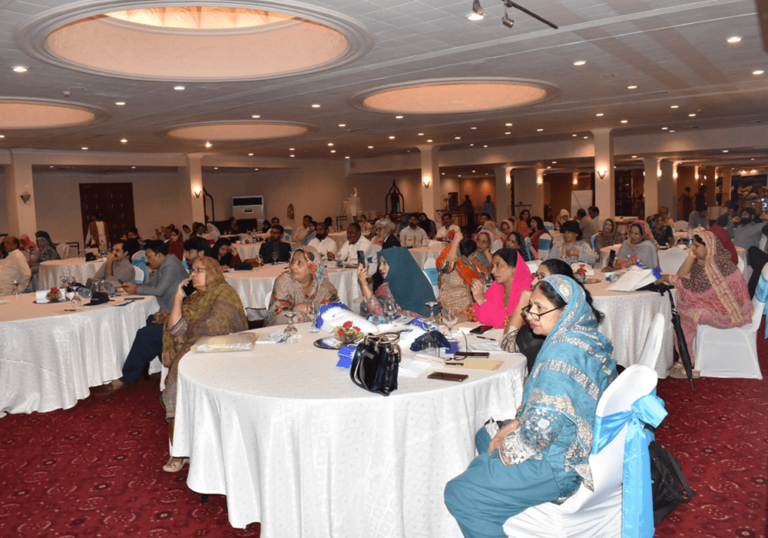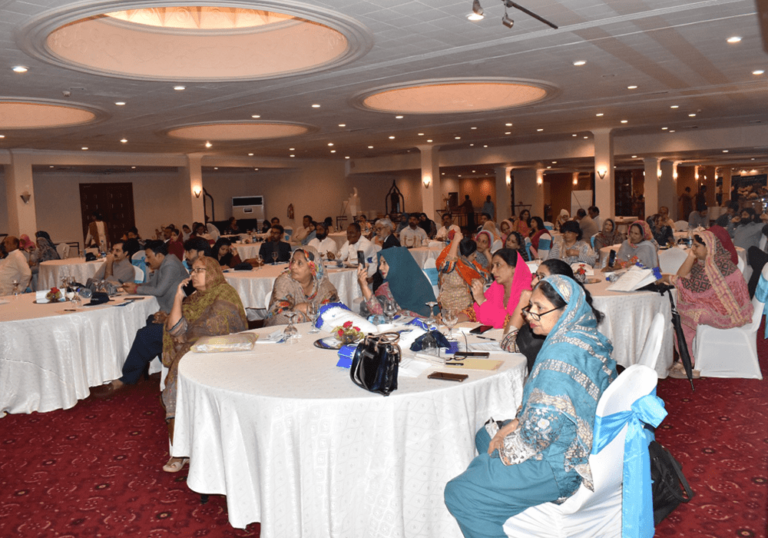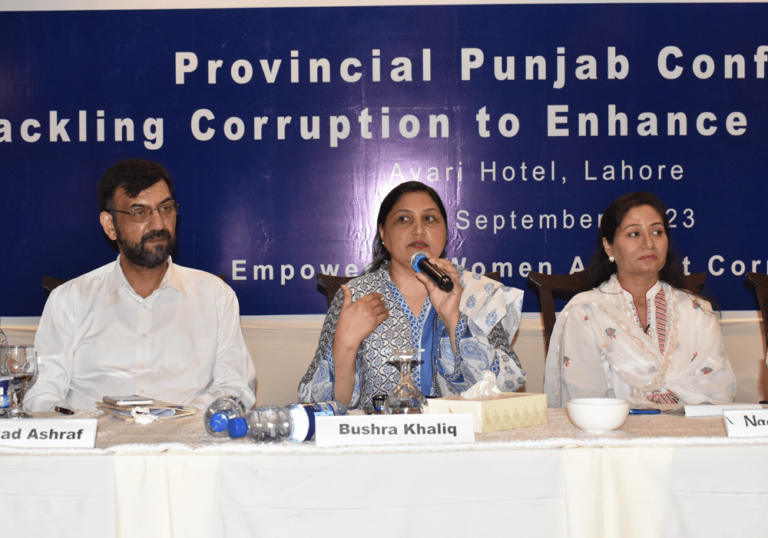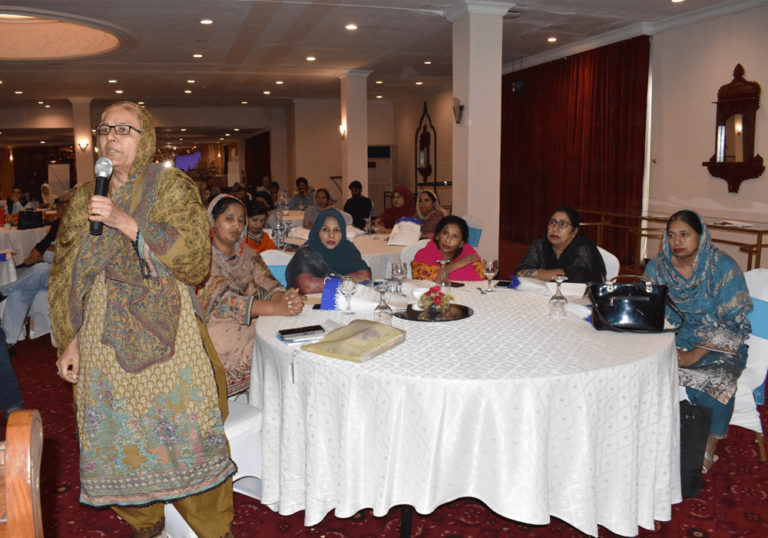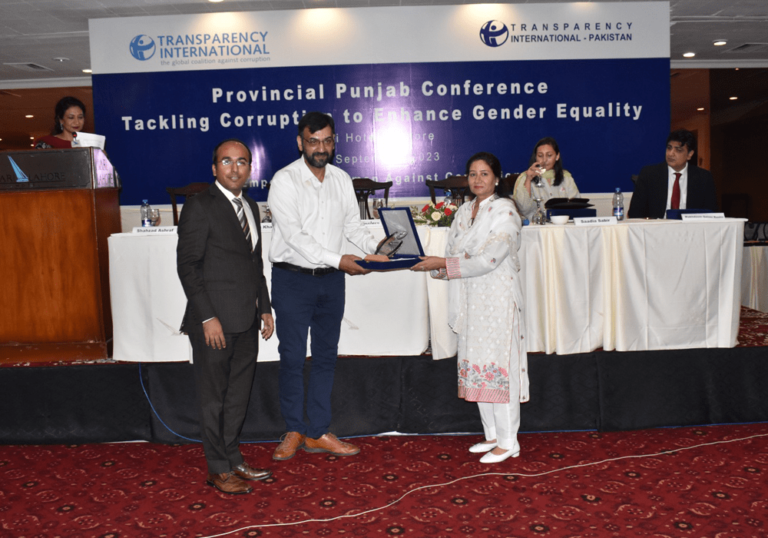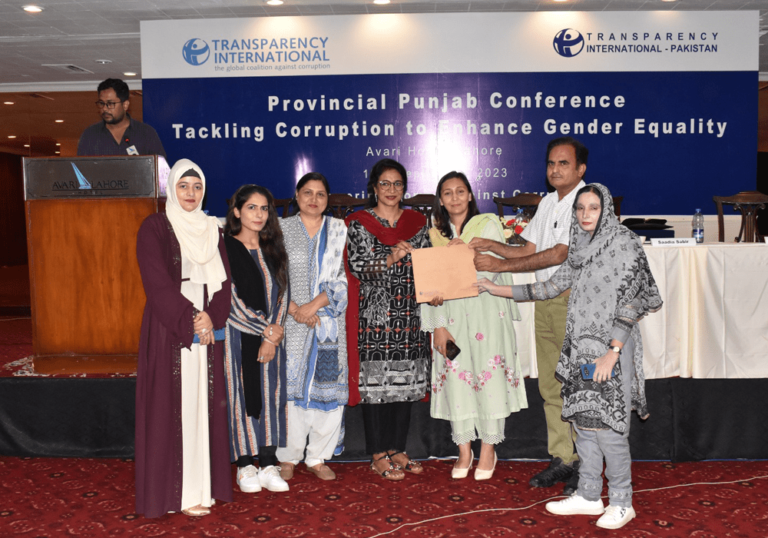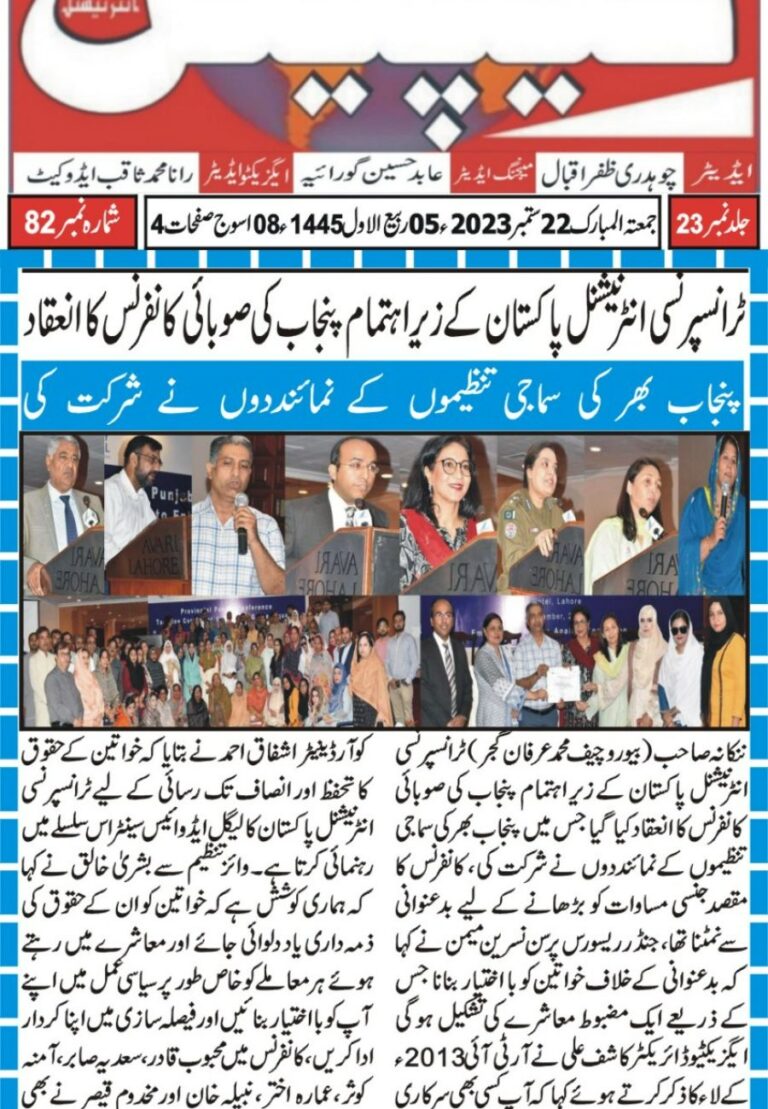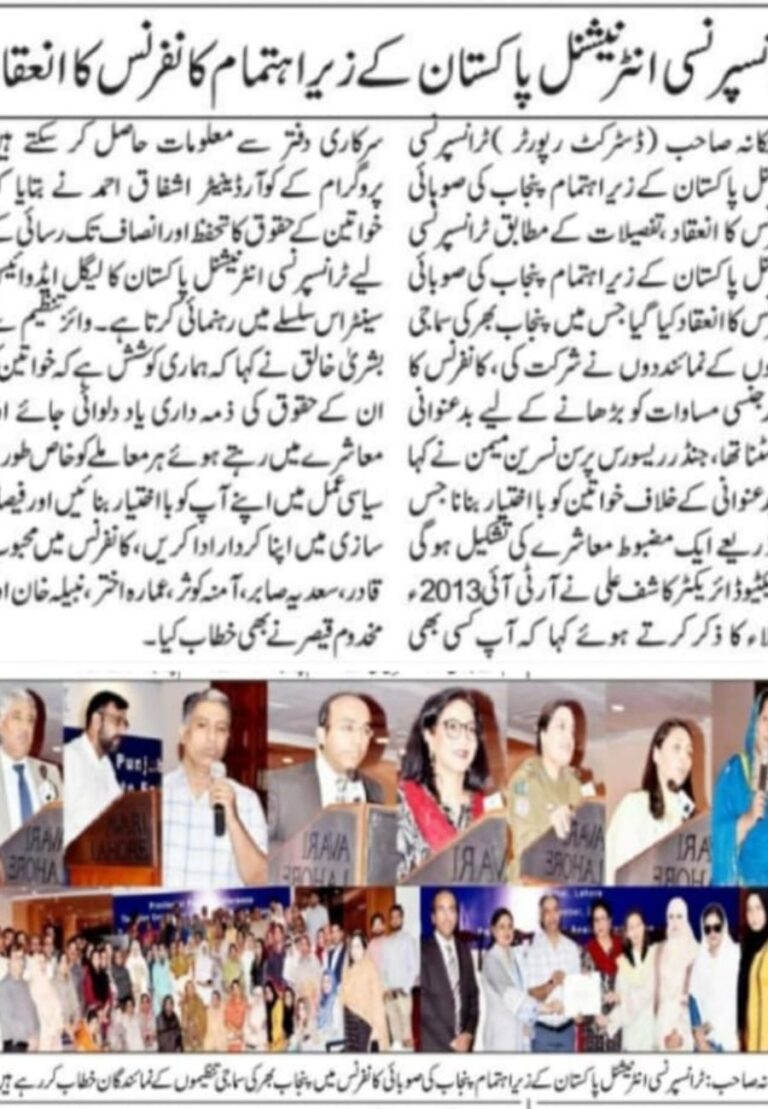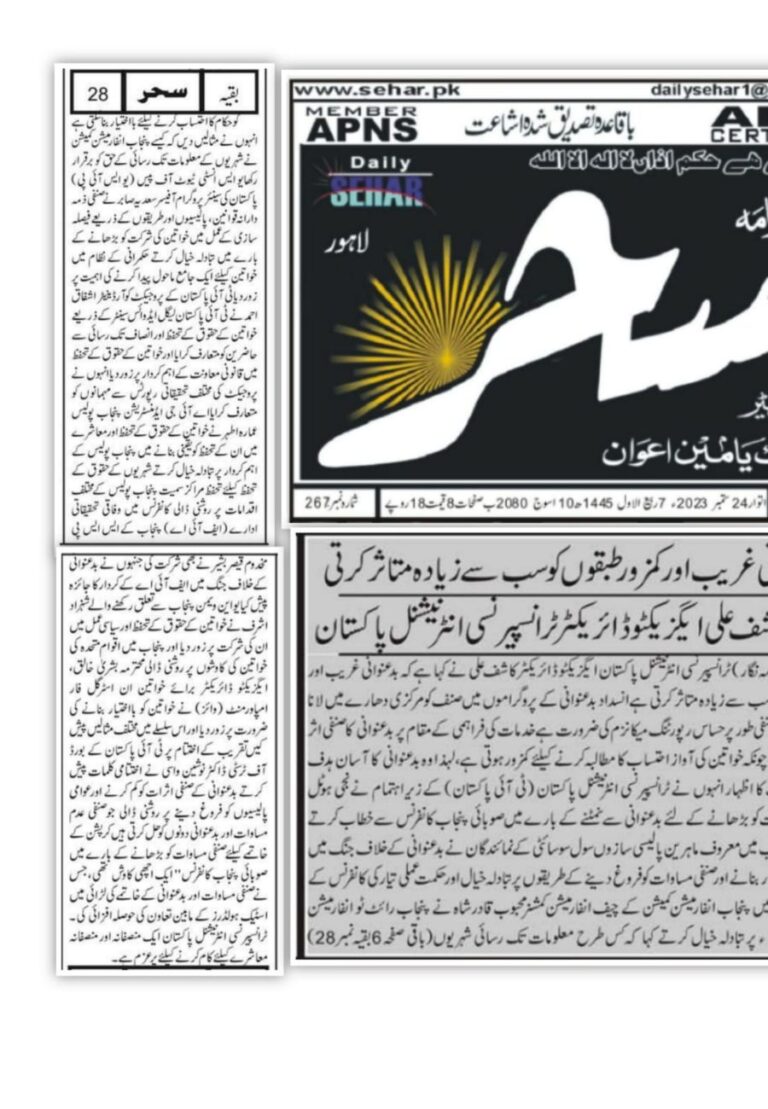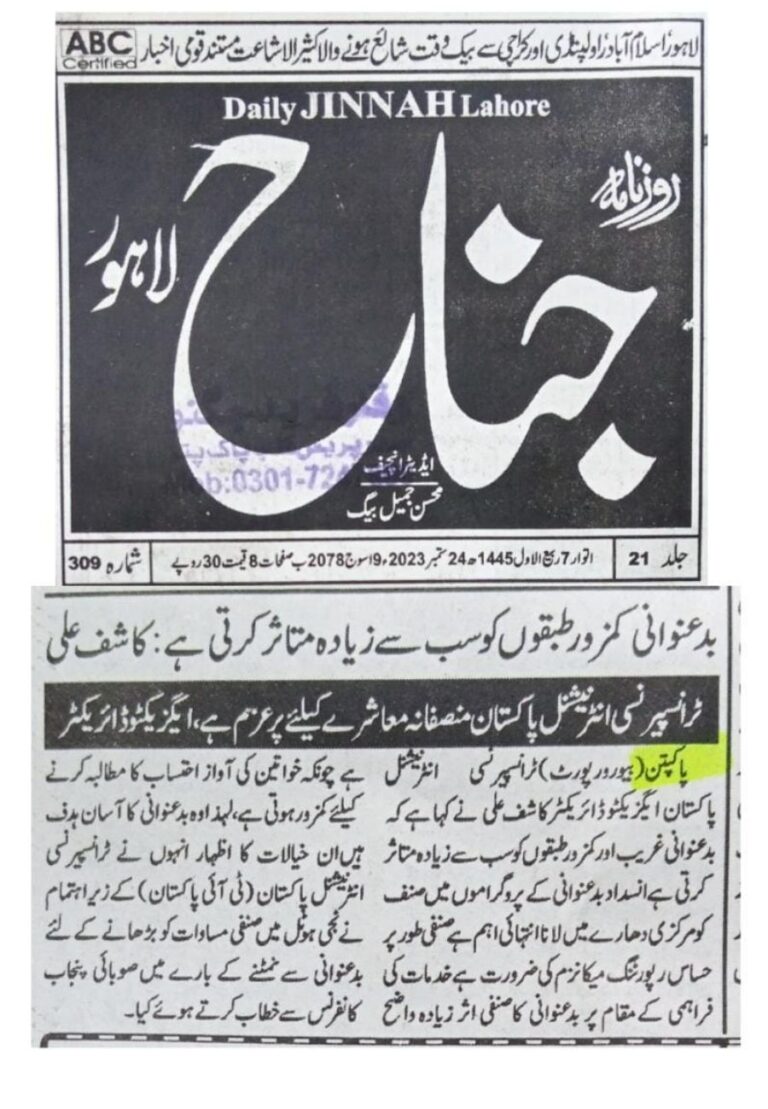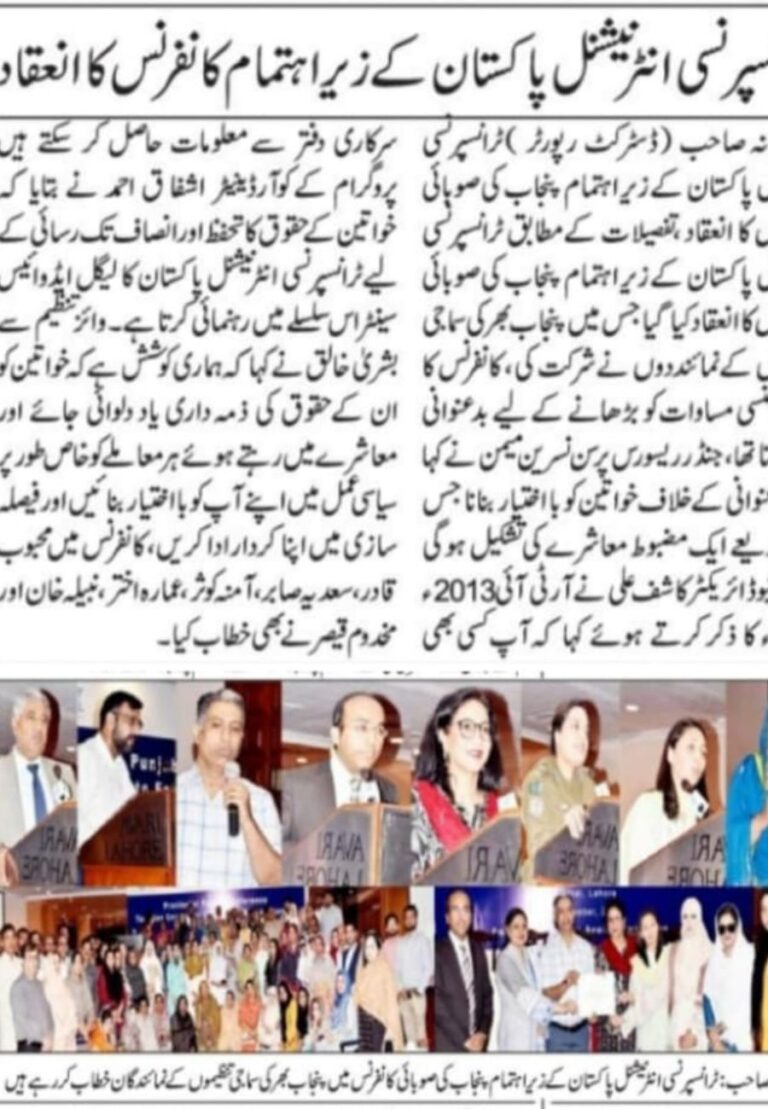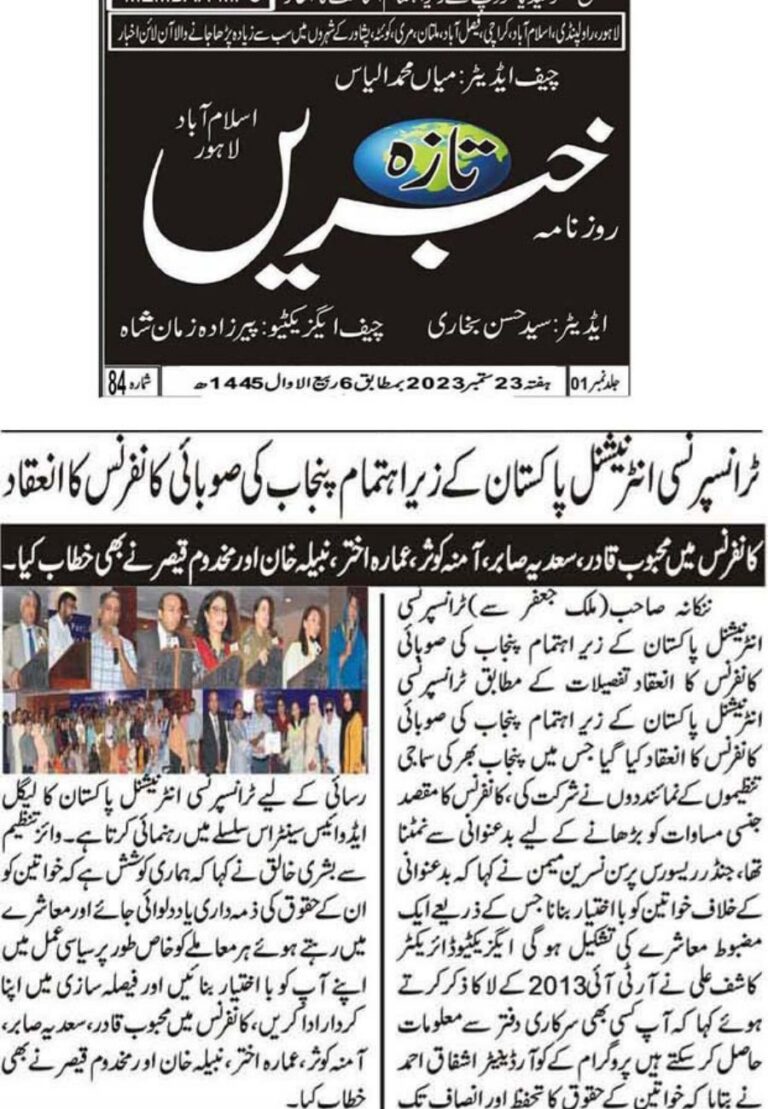- Home
- Summary: Provincial Punjab Conference on Tackling Corruption to Enhance Gender Equality
Summary: Provincial Punjab Conference on Tackling Corruption to Enhance Gender Equality
Summary: Provincial Punjab Conference on Tackling Corruption to Enhance Gender Equality
19th September 2023
Avari Hotel, Lahore
Transparency International Pakistan (TI Pakistan) successfully hosted “Provincial Punjab Conference on Tackling Corruption to Enhance Gender Equality” at Avari Hotel in Lahore on September 19th, 2023. The event brought together renowned experts, policymakers, and civil society representatives to discuss and strategize ways to empower women in the fight against corruption and promote gender equality.
The event started with the recitation of the Holy Quran.
Mr. Kashif Ali, Executive Director TI Pakistan, provided opening remarks and emphasized on the relationship between gender and corruption. He highlighted that corruption hits the poor and vulnerable groups the hardest. He argued that the gendered impact of corruption at the point of service delivery is more conspicuous. As women tend to have a weaker voice to demand accountability, they can also become easier targets for corruption. He emphasized that mainstreaming gender into anti-corruption programmes is crucial and emphasized the need for gender sensitive reporting mechanisms.
Moving forward, one of the key sessions at the conference featured Mr. Mehboob Qadir Shah, Chief Information Commissioner of the Punjab Information Commission, who discussed the Punjab Right to Information Act 2013, shedding light on how access to information can empower citizens to hold authorities accountable. During his presentation, he explored into the details of the Punjab Right to Information Act 2013, highlighting its profound significance in the realm of governance and accountability. Mr. Shah underscored how access to information is a formidable tool that empowers citizens to scrutinize the actions of public authorities and ensure they remain transparent and accountable in their dealings. He shared success stories where PIC has upheld citizens right to access information.
Next, Ms. Saadia Sabir, Senior Program Officer at the U.S. Institute of Peace (USIP) Pakistan, shared valuable insights into enhancing women’s participation in decision-making processes through gender-responsive laws, policies, and practices. She highlighted that as per UN Women data, gender equality in the highest positions of power has increased from 11% in 1995, however, at the current rate, it will not be achieved for another 130 years.
She spoke about the challenges for women participation in Pakistan and emphasized that enhancing women’s participation in decision-making processes is a vital goal that can be achieved through the implementation of gender-responsive laws, policies, and practices. Such initiatives aim to dismantle the barriers that hinder women’s engagement in leadership roles and decision-making forums across various sectors. She further said that by adopting inclusive policies and practices that acknowledge and address the unique challenges faced by women, societies can harness the diverse perspectives and talents of their entire population.
Next, Mr. Ashfaque Ahmed, Project Coordinator at TI Pakistan, introduced the audience to the Protection of Women Rights and Access to Justice through TI Pakistan Legal Advice Centre. He emphasized the critical role of legal support in safeguarding women’s rights. He provided a detailed overview of the complaints handled at TI Pakistan Legal Advice Centre and shared success stories of women who have benefited from free legal advice.
Moving forward, Ms. Ammara Athar, AIG Administration Punjab Police, Government of Punjab, provided a compelling perspective on the indispensable role of law enforcement in safeguarding women’s rights and fostering a secure societal environment. She gave detailed overview of different initiatives spearheaded by the Punjab Police, such as the establishment of Tahafuz Centres, dedicated to ensuring the protection and well-being of citizens in particular women. She introduced various services such as 150: Police Khidmat Markaz, 183: Police Khidmat Counters, 37: Police Tahaffuz Centers introduced by the Punjab Police, and told that 17.5 million people have been served till now. She said that Punjab Police is building trust among women through inclusive policing, women police officers and gender sensitive policing.
The conference also featured SSP Makhdoom Qaiser Bashir of the Federal Investigation Agency (FIA) Punjab, who provided an overview of FIA’s role in the fight against corruption. Mr. Bashir discussed the FIA’s involvement in addressing a wide range of issues, including human trafficking, assets acquired through illicit means, banking offenses, corporate misconduct, tax evasion, as well as the theft of electricity and natural gas. Moreover, he emphasized the FIA’s crucial role in investigating cybercrimes, especially those linked to women, and highlighted that FIA’s cybercrime wing handles cases around harassment issues. He emphasized that the FIA is the designated agency responsible for probing cybercrimes committed through electronic devices such as mobile phones, laptops, and computers. He advised women to take precautionary measures while using the social media.
Next, Mr. Shahzad Ashraf from UN Women, Punjab, spoke on the topic “protection of women’s rights and their participation in the political process”, shedding light on UN Women’s efforts in Punjab. UN Women plays a pivotal role in promoting gender equality worldwide. Mr. Ashraf discussed UN Women’s impactful initiatives across various domains, actively promoting women’s leadership and political involvement, fostering economic empowerment, combating violence against women, and advancing peace and security. He highlighted that UNWOMEN interventions are at the heart of UN Women’s commitment to achieving gender equality and women’s empowerment in Pakistan.
Next, Ms. Bushra Khaliq, Executive Director of Women in Struggle for Empowerment (WISE), shared inspirational stories and insights about women’s empowerment. She said that women’s empowerment in Pakistan is a multifaceted and ongoing challenge, deeply rooted in societal norms, cultural traditions, and economic disparities. Despite these obstacles, there have been significant strides and ongoing efforts to uplift women in various spheres. Ms. Khaliq shared compelling stories of resilience and determination, highlighting the transformative impact of education, economic independence, and social advocacy on the lives of women, thereby giving them the agency to stand up for their rights and demand accountability.
Towards the end, an engaging Question & Answer session was held where participants raised different inquiries and thoughtfully shared their experiences and valuable suggestions concerning women’s active involvement in decision-making processes, women’s rights, challenges faced by women, and the crucial role of women in governance. It helped to construct a deeper understanding of the complexities surrounding gender equality and corruption.
The event concluded with remarks by Dr. Nausheen Wasi, Board of Trustee, TI Pakistan. She highlighted key points to mitigate the gendered impact of corruption and promote public policies that address both gender inequities and corruption. Dr. Wasi emphasized the crucial need to address the gendered impact of corruption, shedding light on how corrupt practices often disproportionately affect women and exacerbate existing gender inequities. She emphasized the importance of crafting public policies that not only combat corruption but also actively strive to rectify gender disparities. Her remarks served as a reminder of the intersectionality between corruption and gender, inspiring attendees to consider innovative approaches that can effectively address these multifaceted challenges.
The “Provincial Punjab Conference on Tackling Corruption to Enhance Gender Equality” was a resounding success, fostering meaningful dialogue and encouraging collaboration among stakeholders in the fight for gender equality and the eradication of corruption. Transparency International Pakistan remains committed to working towards a more just and equitable society for all.


